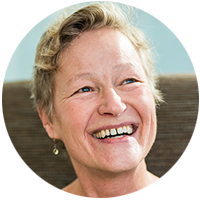Cambridge Healthtech Institute's Inaugural
Site Activation & Study Start-Up
Optimizing Processes to Ensure Study Start-Up Success
May 14-15, 2019
Successful study start-up hinges on meeting patient recruitment goals and selecting and engaging with clinical trial sites and investigators that can effectively launch study start-up activities. CHI’s Site Activation & Study Start-Up conference
covers lessons learned, best practices and insightful conversations on optimizing study start-up processes and minimizing inefficiencies with technology. Special focus will be given to virtual and remote trials.
Final Agenda
Tuesday, May 14
10:00 am Conference Registration
Essex North & Center
10:45 PLENARY KEYNOTE SESSION: Enabling Patient-Centric Clinical Trials
10:45 Chairperson Remarks: Patient-Centric Trials: How to Engage the Patients in a Clinical Study
 Basker Gummadi, IT Strategy & Digital Transformation, Digital Innovation, Bayer U.S. LLC
Basker Gummadi, IT Strategy & Digital Transformation, Digital Innovation, Bayer U.S. LLC
Basker will share the results of the patients’ interaction and what is important to them and what keeps them engaged in a trial. He will also share his personal vision of how Digital technologies can help in this space.
10:55 KEYNOTE PRESENTATION: Patient-Centric Trials: Moving from What’s the Matter with Patients to What Matters to Patients
.png) Lisa Shipley, Vice President, Global Digital Analytics, Merck
Lisa Shipley, Vice President, Global Digital Analytics, Merck
The overall percentage of potential patients that participate in clinical trial is very low. Engaging patients and removing barriers to patient participation in clinical trials is critically important to the development of new therapies to improve human
health. Digital technologies are poised to improve patient participation and experience and shift from a site-centric to a patient-centric model. Pharmaceutical companies and CRO’s are exploring a number of different paradigms deploying technologies
such as, telemedicine, wearables, and home-sampling.
11:15 KEYNOTE PANEL DISCUSSION: Going Virtual – Moving towards Patient-Centric, Site-Less Trials
.png) Lisa Shipley, Vice President, Global Digital Analytics, Merck
Lisa Shipley, Vice President, Global Digital Analytics, Merck
 Linnea Olson, Lung Cancer Patient Advocate
Linnea Olson, Lung Cancer Patient Advocate
 Laura Whitmore, Director, R&D Innovation, Corporate Projects, Otsuka
Laura Whitmore, Director, R&D Innovation, Corporate Projects, Otsuka
 Michelle Shogren, Head of Innovation in Portfolio and Operations, Pharma Development, Bayer
Michelle Shogren, Head of Innovation in Portfolio and Operations, Pharma Development, Bayer
With the rise and integration of new technologies into clinical trials – mHealth, wearables, sensors, the internet of things – there is an unprecedented opportunity for revolutionizing how the industry performs clinical trials. New technology
can help move clinical trials from sites directly into patient homes.
- Virtual trials, decentralized trials, remote trials, site-less trials: What are we all talking about?
- What are the latest successes and failures?
- What are the barriers and challenges? How is the industry leveraging technology to make this a reality?
- What are patients saying about their experience with virtual trials?
- What does this mean for the future of clinical trials?
11:50 KEYNOTE PRESENTATION: Prescription of Digital Therapeutics: The Time has Arrived!
 Ashish Atreja, MD, MPH, FACP, Chief Technology Innovation and Engagement Officer, Medicine, Icahn School of Medicine at Mount Sinai
Ashish Atreja, MD, MPH, FACP, Chief Technology Innovation and Engagement Officer, Medicine, Icahn School of Medicine at Mount Sinai
12:20 pm Networking Lunch & Dessert Break in the Exhibit Hall
1:45 Chairperson’s Remarks
Sid (Siddhartha) Chowdhury, MS, Clinical Trial Manager, Global Clinical Services, Alkermes, Inc
1:50 Digital Data Flow: Developing a Technology Solution Framework to Facilitate Full End-to-End Data Flow
Munther Baara, MS, Head, New Clinical Paradigm, Pfizer
This session will explore TransCelerate’s Digital Data Flow initiative, which aims to move the drug development process from a current state of manual, study start-up asset creation (i.e. Case Report Forms, Procedure Manuals, Statistical Analysis
Plans, and Schedule of Activities) to a future state of fully-automated, dynamic, study start-up readiness via an open-sourced, vendor-agnostic technical solution that will reduce cycle times and improve data quality for sponsors, third-party providers,
sites and regulators.
2:20 Improving Study Start-Up Practices
Carlos Orantes, CEO, Meridien Research
2:50 Refreshment Break in the Exhibit Hall
3:35 A Systematic Approach to Study Start-Up: Improving Site Activation
Marina Malikova, Ph.D., MA, Executive Director, Surgical Translational Research Operations and Compliance, Boston University
The success of a trial heavily relies on the strong bond between trial operations and project management throughout the life cycle of the trial. Systematic assessment of risk factors and key performance indicators at a start-up phase can allow for more
efficient execution of a clinical trial and ensure better accrual rates. This session will discuss best practices to expedite start-up phase: Develop a sound business strategy for a more efficient study start-up; Determine key performance indicators
and risk factors contributing to the delays at the start-up phase; and Implement mitigation strategy in order to avoid delays and allow for successful launch of a clinical trial.
4:05 Practical Strategies for Ensuring Successful Study Start-Up
Jane M. Jacob, PhD, CCRP, Vice President, Research and Clinical Affairs, Orthofix
4:35 Session Break
Essex North
5:00 Start-Up Showcase and Networking Reception
As a part of the Clinical Trial Innovation Summit, attendees are welcome to attend Tuesday night’s Start-Up Showcase and Networking Reception. As technological advances rapidly enter the market, it may become a challenge to keep up and ensure that
your organization is effectively leveraging these technologies for improved clinical trial efficiency. Come listen to and network with new, emerging companies in the digital tech space as they provide brief descriptions of their companies and their
services or products. Over cocktails in our open reception, connect with emerging products and service providers in the clinical trial space with special focus on the wearable and digital tech space.
7:00 Close of Day
Wednesday, May 15
8:30 am Interactive Breakout Discussion Groups with Continental Breakfast
Concurrent breakout discussion groups are interactive, guided discussions hosted by a facilitator or set of co-facilitators to discuss some of the key issues presented earlier in the day’s sessions. Delegates will join a table of interest and become
an active part of the discussion at hand. To get the most out of this interactive session and format please come prepared to share examples from your work, vet some ideas with your peers, be a part of group interrogation and problem solving, and most
importantly, participate in active idea sharing.
9:25 Session Break
9:40 Chairperson’s Remarks
Kamaljit Behera, MBA, Industry Analyst, Transformational Health, Frost & Sullivan
9:45 Enabling Patient Centricity and Remote Trials in Clinical Development through At Home Sample Collection
Kevin Bateman, Scientific Associate Vice President, Merck
Traditional approaches for measurement of drug exposure in clinical trials involves having the patient travel to a clinical site for collection of venous blood. This puts a burden on the patient while also limiting the opportunities for assessment of
drug exposure or other measurements to these clinical visits. The ability to collect samples at home would provide a more patient-centric approach, enabling remote trials. At home collection would provide benefit for 1) disease areas associated with
episodic events (e.g. asthma, migraine, etc.), 2) long half-life compounds, 3) assessment of adherence, 4) developing understanding of adherence patterns for new dosing regimens (i.e. QWeekly, QMonthly), and 5) more frequent assessment of biomarkers
of efficacy and toxicity. This talk will share results from recent clinical pilot studies employing at home sampling technologies.
10:15 The Next Generation of Clinical Trials
Laura Whitmore, Director, R&D Innovation, Corporate Projects, Otsuka
In 2016, Otsuka implemented an end-to-end electronic trial, reducing site burden and increasing Otsuka’s access to data, enabling real time data and real time decisions. As of January 2018, 24 clinical trials have been initiated using this new ePlatform.
Laura Whitmore will share Otsuka’s experience and lessons learned, and how Otsuka is going farther by designing the next generation of clinical trials.
10:45 Sponsored Presentation (Opportunity Available)
11:00 Coffee Break
St. George CD
11:30 VCCC Teletrials Program - Clinical Trials for Regional Patients
Anne Woollett, RN, Head of Clinical Trials Programs, Victorian Comprehensive Cancer Centre
Cancer patients living in regional and rural Victoria experience several disadvantages including lower survival rates due to socioeconomic issues and access to treatment. The Victorian Comprehensive Cancer Centre (VCCC) Teletrials Program utilises the
Australasian Tele-trial Model to tackle some of these disparities by allowing cancer patients to access clinical trials within their local environment. The model uses tele-health to enable clinicians from larger centres (primary sites) to enroll,
consent and treat patients on clinical trials at smaller regional and rural centres (satellite sites) - a hub‐and‐spoke approach between a primary trial site and a satellite site(s). The first Teletrial in Victoria opened in November 2018 with Peter
MacCallum Cancer Centre as the Primary Site and Border Medical Oncology Research Unit as the Satellite Site. The model will be rolled-out locally, nationally and internationally.
12:00 pm Investigating the Utility of Minimally Invasive Blood Sample Collection Technologies and Their Role in Clinical Trials
Jinming Xing, Postdoctoral PharmD Fellow, Biomarker Development, Novartis
In clinical trials, blood samples are routinely collected from study subjects to provide important data for the drug safety and efficacy. Minimally invasive and patient centric procedures can help to facilitate subject recruitment, improve subject retention,
and promote simplification of trial design and conduct. A pilot study has been conducted to evaluate a minimally invasive blood sampling technology for biomarker analysis. The aim of the study is to compare protein biomarker data obtained under home-based
like collection vs. typical clinical study collection at a site. A broad range of biomarkers were examined using SOMAscan proteomic assay.
12:30 Luncheon Presentation (Sponsorship Opportunity Available) or Lunch on Your Own
1:15 Session Break
2:15 Chairperson’s Remarks
Sid (Siddhartha) Chowdhury, MS, Clinical Trial Manager, Global Clinical Services, Alkermes, Inc
2:20 Site Relationships with CROs and Sponsors from A Site Perspective
Carlos Orantes, CEO, Meridien Research
2:50 Fostering Site Relationship: Phase 3 CNS Pivotal Study – A Case Study
Sid (Siddhartha) Chowdhury, MS, Clinical Trial Manager, Global Clinical Services, Alkermes, Inc.
I can provide sponsor insight on how site relationship is key in start-up and recruitment and what Alkermes does to maintain relationships with our sites. I can share Start-Up statistics and metrics. This presentation would be a nice takeaway for sites,
CROs and sponsors planning a big phase 3 study and help them prepare for pitfalls, loopholes and challenges.
3:20 An Evolution of Sponsor-Site Collaboration in the Planning and Execution of Clinical Trials
Lisa Moneymaker, CTMS Process Architect, Amgen
For years, TransCelerate’s Member Companies noted that clinical trial Sites were heavily burdened by using many different platforms, each requiring unique login credentials to perform clinical trial responsibilities and communicate with participating
Sponsors. In addition to the high costs and redundant efforts involved in developing and maintaining individual Sponsor portals, the existence of disparate processes and tools within these portals increased both risk of error and support needed for
Site Users. Shared Investigator Platform (SIP) was built as a cross-industry solution designed to address these challenges and ultimately enhance efficiency during clinical trial planning and execution.
3:50 Close of Conference. Arrive early to attend Site Selection & Feasibility